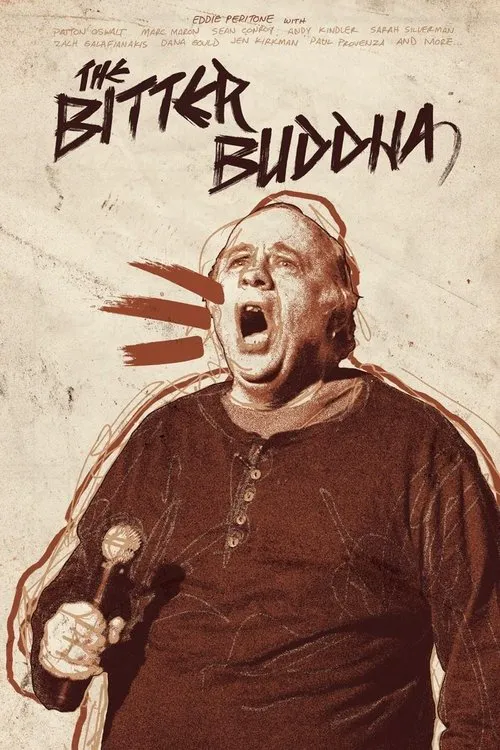The Bitter Buddha

Plot
In the world of stand-up comedy, there are few individuals as unique and uncompromising as Eddie Pepitone, a man who has been dubbed "The Bitter Buddha." This title, which also serves as the name of his documentary, captures the essence of his offbeat personality and provides a fitting framework for exploring the intricacies of his creative process. The film, which delves into the life and times of this enigmatic figure, offers a thought-provoking examination of the intersection between art, spirituality, and the human condition. As the documentary opens, we are introduced to Pepitone, a charismatic and confident performer who has spent years honing his craft on the comedy circuit. His style, which blends elements of satire, observational humor, and storytelling, has earned him a loyal following and critical acclaim. However, beneath the surface of his witty exterior lies a complex and deeply sensitive individual, driven by a fierce passion for his craft and a unyielding commitment to the truth. As the film delves deeper into Pepitone's life, we gain a deeper understanding of the experiences that have shaped him into the person he is today. We see glimpses of his early days as a struggling comedian, where he faced rejection and disappointment at nearly every turn. We witness his struggles with anxiety and depression, which often left him questioning his own mortality and the point of his existence. And we observe his journey towards spirituality, which began with a desire to confront his inner demons and eventually led him to explore the teachings of Eckhart Tolle and other spiritual masters. One of the most striking aspects of the documentary is its portrayal of Pepitone's relationships. We see him interacting with his family and friends, who provide a rich tapestry of insights and perspectives on his life and career. We witness his dynamic with his wife, who has been his partner in both life and comedy, and his mother, who still harbors a deep affection for her son despite his often tumultuous path. And we observe his relationships with other comedians, including some of his closest friends and confidants, who offer a glimpse into the cutthroat world of stand-up comedy. Throughout the documentary, Pepitone's on-stage persona is contrasted with his off-stage persona, highlighting the tension between his public and private selves. When he is on stage, he is a force to be reckoned with, unleashing a torrent of biting wit and unflinching honesty that leaves audiences in awe. Off-stage, however, he is a more vulnerable and human creature, struggling to reconcile the demands of his career with the needs of his heart. One of the key themes of the documentary is the concept of "enlightenment." Pepitone has long been interested in spirituality and personal growth, and his exploration of these topics has had a profound impact on both his life and his work. As he delves deeper into the teachings of Tolle and other spiritual masters, he begins to see the world in a new and profound light, one that is characterized by a sense of compassion, understanding, and detachment. For Pepitone, the path to enlightenment has been a long and winding one, marked by periods of intense struggle and introspection. As he navigates the challenges of his career and personal life, he is forced to confront his own limitations and biases, and to develop a greater sense of self-awareness and understanding. Through a combination of humor, introspection, and spiritual inquiry, he begins to break free from the constraints of his ego and to connect with something deeper and more profound. Ultimately, the documentary is a testament to the transformative power of art and creativity. Through his writing and performing, Pepitone has been able to tap into a deep well of emotion and insight, and to share his experiences with a wider audience. As we watch him navigate the complexities of his life and career, we are reminded of the enduring power of the human spirit, and the importance of embracing our own unique perspectives and experiences. In the end, the portrait of Eddie Pepitone that emerges from "The Bitter Buddha" is a nuanced and multifaceted one, revealing a complex and deeply sensitive individual who is both a product of his culture and a true original. As we reflect on his life and career, we are reminded of the importance of embracing our imperfections and limitations, and of cultivating a sense of compassion and understanding towards ourselves and others.
Reviews
Recommendations



